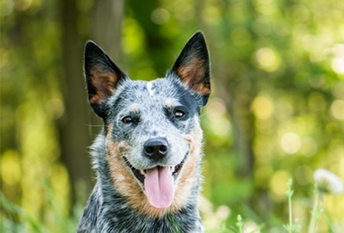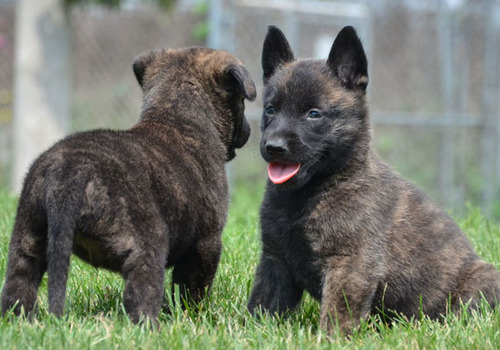The short-haired variety needs occasional combing, with the exception during the shedding period in the spring and fall when daily thorough brushing is needed.
The long-haired variety needs to be groomed about once a week, or more frequently depending on work and environment. The rough-hair variety needs to be thoroughly brushed once a week, and twice a year the dead hair will need to be hand stripped.
An excellent all-around utility dog, the Dutch Shepherd excels at agility, obedience competitions, guard work, herding and field trailing. You need to be active to keep up with this dog. Daily exercise is a necessity – take your dog out for lots of walks, runs, hikes or bike rides. You should have a yard, so your dog can run around on his own.
If your Dutch Shepherd doesn’t get the activity he needs, he will find his own amusement. This includes destroying your possessions. He needs to work, both mentally and physically.
These energetic, large dogs need a well-balanced, nutritious diet to support their overall health. The right ratio of meat-based protein, healthy fats, and complex carbs is the magic formula, especially when fortified with essential minerals and vitamins.
In most cases, all of these nutrients can be found in high-quality dry food for dogs. The Dutch Shepherd will do well on a diet of premium kibble, as long as it is made from high-grade materials and meets their unique needs. In other words, choose kibble that is suitable for their age (puppy, adult, or senior) and their size and activity level. High-qualitydry food for large and athletic dogsis usually a good match.
To prevent bloat, split their recommended daily serving of kibble into two separate meals.
Being a lesser known breed and because of Dutch breeding rules, the Dutch Shepherd is generally a healthy breed. As with any breed, there are sometimes occurrences of other diseases. Current testing is underway to determine if there is a need for other required tests.
Breeders should screen for hip dysplasia in all coat types. The long-haired types should also be screened for thyroid issues, and the rough-haired for angiodysplasia.
The Dutch Shepherd is a pleasure to train. This breed is intelligent, it is believed to be the most competent of all shepherd dogs, especially when it comes to agility, obedience competitions, guard duty, herding, and field trailing. This also makes the breed a great choice for service duty, police work and search and rescue training.
Because this breed is so smart, it’s important to establish your role as the pack leader. With dogs that are this intelligent, a stubborn streak is a common occurrence- but the right approach ensures this is not an issue.
Your Dutch Shepherd must learn his place within the family unit. Of course, taking a stance as the pack leader doesn’t mean you have to be harsh or cruel- simply maintain a confident and firm attitude.
Rely on positive reinforcement tactics instead of aversive methods and you’ll be set for success. Using reward to motivate a smart dog always works, and once your Dutchie figures out that doing something gets them a treat and praise, you can count on them wanting to what they’re told.











